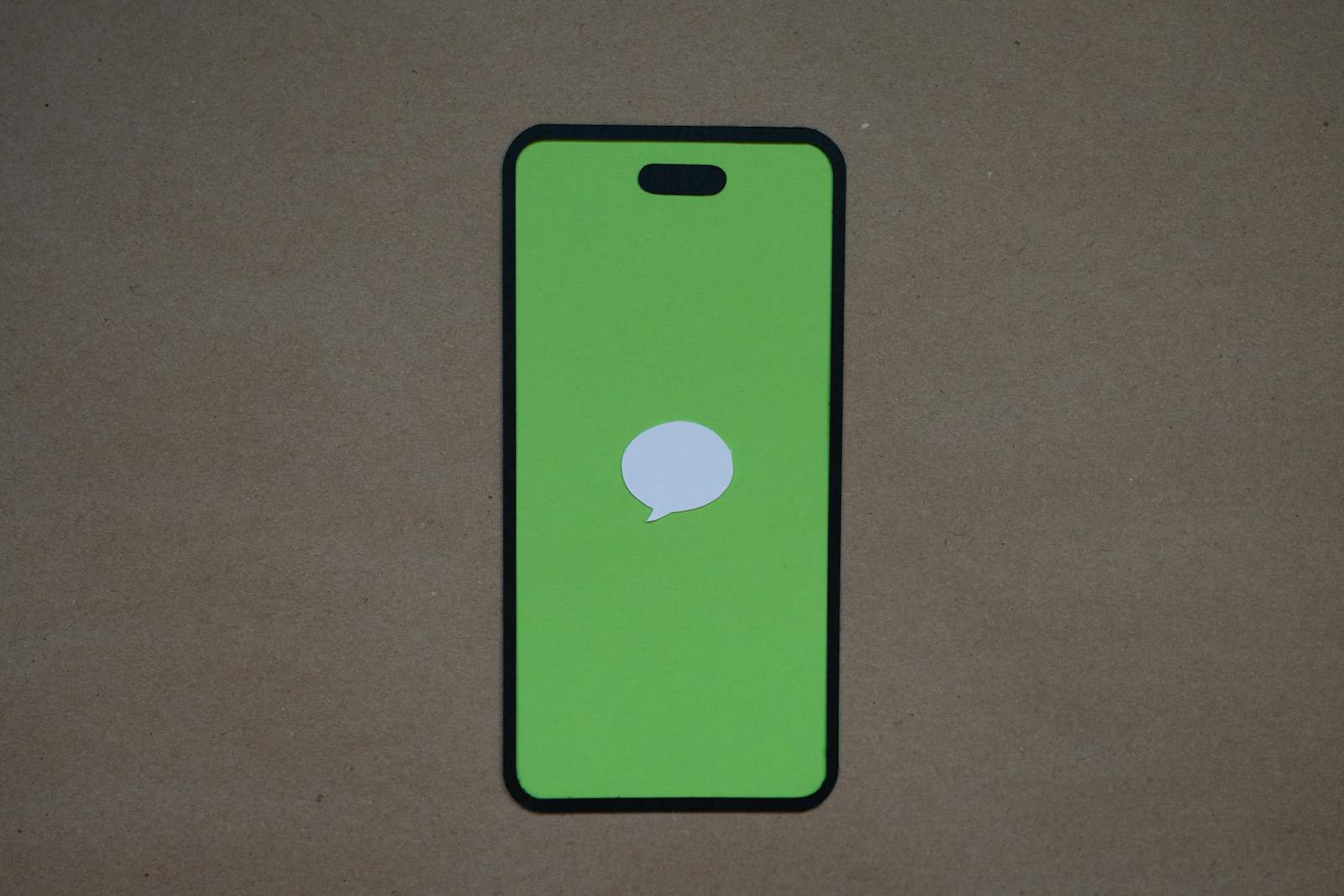Text messages serve as crucial evidence in criminal investigations and civil lawsuits. Police and attorneys regularly request these digital communications to build their cases or uncover important facts.
Police can typically retrieve text message records dating back anywhere from 60 days to seven years, depending on the cellular provider’s retention policies and whether they seek message content or just metadata. Most carriers keep records of when messages were sent and who received them for extended periods. However, the actual text content gets deleted much faster by most companies.
The process involves strict legal requirements and varies significantly based on message age, encryption, and state laws. Understanding these factors helps people know what digital traces might exist and how law enforcement accesses this information during investigations.
How Far Back Can Text Messages Be Retrieved for Legal or Police Matters
Text messages can be crucial evidence in legal and police investigations. However, the ability to retrieve these messages depends on several factors including technology, legal authority, and service provider policies. Here’s a guide to understanding how far back text messages can be accessed in such contexts.

Here is a table summarizing how far back text messages can typically be retrieved by police or for legal matters, broken down by major carrier policies and general practices:
| Carrier | Typical Retention Period for Text Message Records | Notes |
|---|---|---|
| Verizon | Up to 3 years | Verizon retains message metadata and content for about 3 years; retrieval usually requires a warrant. |
| AT&T | Approximately 1-3 years | AT&T keeps records for 1-3 years depending on the type of data; content retrieval often needs legal authorization. |
| T-Mobile | Around 1 year | T-Mobile generally retains records for about 1 year; deleted messages may not be recoverable without forensic tools. |
| Sprint (now part of T-Mobile) | Similar to T-Mobile | Same policies as T-Mobile after merger. |
| US Cellular | Varies, generally up to 1 year | Retention periods can vary; legal requests must comply with privacy laws. |
| MetroPCS (T-Mobile) | About 1 year | Follows T-Mobile’s retention policies. |
Additional details:
- Carriers typically retain metadata (sender, receiver, time, date) longer than message content.
- Actual message content may not be stored long-term by carriers, especially for SMS; MMS and other media may have different policies.
- Law enforcement can also retrieve messages from the phone itself using forensic tools, which can recover deleted messages if the phone is available.
- Access to these records almost always requires a legal warrant or court order due to privacy protections.
- Retention policies can vary by carrier and jurisdiction; always check the specific carrier’s current policy for precise details.
Factors Affecting Retrieval of Text Messages:
1. Storage on the Device
- If the text messages are still stored on the phone itself, police or legal investigators can potentially access them regardless of how old they are.
- Deleted messages might still be recoverable using specialized forensic tools until they are overwritten by new data.
2. Service Provider Retention Policies
- Mobile carriers usually keep records of text messages for a limited period, often ranging from a few days to several months.
- The exact duration varies by provider and jurisdiction.
- Some providers may retain metadata (such as sender, receiver, and time) longer than the message content itself.
3. Legal Authority and Warrants
- Law enforcement typically needs a warrant or subpoena to obtain text message records from service providers.
- The scope of the warrant and local laws dictate how far back messages can be requested.
- Courts may limit the timeframe based on relevance to the investigation.
4. Deleted Messages Recovery
- Deleted texts can sometimes be recovered from the phone’s internal memory or backups if they have not been overwritten.
- Recovery depends on the phone model, operating system, and whether backups (cloud or local) exist.
Typical Timeframes:
| Source | Typical Retention Period |
|---|---|
| Phone Internal Storage | Indefinite if not deleted or overwritten |
| Service Providers | From a few days up to 6 months (varies widely) |
| Cloud Backups | Depends on user settings, can be months or years |
Important Considerations:
- Privacy Laws: Laws like the Electronic Communications Privacy Act (ECPA) regulate how and when law enforcement can access digital communications.
- Jurisdictional Differences: Different states and countries have varying rules on data retention and access.
- Statute of Limitations: Legal cases have time limits that can affect the relevance and admissibility of older messages.
Summary
Police and legal authorities can retrieve text messages going back as far as they remain accessible on the device or through service providers, typically up to several months. Deleted messages may also be recovered depending on the device and backup status. However, legal procedures such as warrants and subpoenas are required to access these records, and retention policies vary.
Key Takeaways
- Text message retrieval timeframes depend on carrier policies, with metadata stored longer than actual message content
- Police need warrants or court orders to access text messages, with different legal standards for older versus newer messages
- Several factors affect accessibility including encryption services, state laws, and whether messages were deleted from devices
Factors Determining How Far Back Text Messages Can Be Retrieved
Several legal and technical elements control how far back text messages can be accessed in legal proceedings. These factors range from federal privacy laws and service provider policies to encryption methods and jurisdictional differences.
Legal Frameworks: Subpoenas, Court Orders, and Warrants
Law enforcement and attorneys must use specific legal tools to access text messages. A subpoena can obtain basic subscriber information and phone records but cannot access message content. Court orders under the Stored Communications Act allow access to messages older than 180 days.
Search warrants provide the strongest legal authority. They grant access to recent message content and require probable cause. The Fourth Amendment protects electronic communications, making warrants necessary for messages less than 180 days old.
Different legal tools produce different results. Attorneys in civil cases typically use subpoenas for metadata. Criminal investigations require warrants for content access. The legal standard increases with the sensitivity of requested data.
Riley v. California established that police need warrants to search digital devices. This ruling strengthened privacy protections for text messages and other electronic communications stored on phones.
Stored Communications Act and Electronic Communications Privacy Act Overview
The Stored Communications Act (SCA) governs how electronic communications can be accessed. It treats messages differently based on age and storage location. Messages stored for more than 180 days receive less protection than newer communications.
The Electronic Communications Privacy Act provides the broader framework. It covers wiretapping, stored communications, and pen register devices. These laws create specific procedures for accessing different types of electronic data.
Service providers must follow SCA requirements when responding to legal requests. They can only release information that matches the legal authority provided. A subpoena cannot compel content disclosure if the law requires a warrant.
Legal professionals must understand which tool applies to their situation. Using the wrong legal process can result in rejected requests or inadmissible evidence.
Role of Service Provider Data Retention Policies
Data retention policies vary significantly between carriers. Verizon keeps text message content for up to 5 days. AT&T stores messages for 90 days before deletion. T-Mobile and Sprint do not retain message content at all.
These policies directly impact retrieval timeframes. Messages deleted from carrier servers cannot be recovered through legal requests. Attorneys must act quickly when seeking older communications.
Service providers maintain different types of records. Call detail records last much longer than message content. Metadata about when and where messages were sent often remains available for years.
Some carriers store messages in cloud services with different retention rules. Virgin Mobile keeps messages for 90 days. Smaller carriers may have shorter or longer retention periods depending on their infrastructure.
Differences Between Content and Metadata Access
Metadata includes information about when messages were sent, received, and to whom. This data remains accessible much longer than actual message content. Phone companies typically store metadata for several years.
Message content refers to the actual text within communications. This information receives stronger legal protection and gets deleted faster. Most carriers delete content within days or months.
Legal requests must specify which type of information they seek. A subpoena can obtain metadata but not content. Content requires higher legal standards like court orders or warrants.
The distinction affects evidence gathering strategies. Metadata can establish communication patterns and timelines. Content provides the actual substance of conversations.
Impact of End-to-End Encryption and Encrypted Services
End-to-end encryption prevents service providers from accessing message content. Apps like Signal and WhatsApp encrypt messages so only senders and receivers can read them. Even court orders cannot compel access to encrypted content.
Apple and other technology companies increasingly use encryption by default. iMessage encrypts communications between Apple devices. This makes content retrieval impossible even with valid legal authority.
Encryption affects different services differently. Standard SMS messages are not encrypted and remain accessible through carrier records. Encrypted messaging apps store no readable content on their servers.
Law enforcement faces growing challenges with encrypted communications. They must obtain devices directly or use other investigative methods when encryption blocks access.
Variations Across Jurisdictions and State Laws
State laws can provide additional privacy protections beyond federal requirements. Some states require higher legal standards for accessing electronic communications. Others have specific notification requirements for data requests.
Jurisdiction determines which laws apply to data requests. Messages crossing state lines may involve multiple legal frameworks. International communications add complexity with foreign privacy laws.
Different courts interpret privacy laws differently. Some judges require more specific justification for electronic search warrants. Others apply traditional search and seizure concepts to digital communications.
Legal professionals must research local requirements in addition to federal law. State constitutional protections may exceed federal standards for electronic privacy.
Law Enforcement Requests and Evidence Handling
Law enforcement requests must follow specific procedures for different types of data. Emergency requests can bypass normal legal requirements in life-threatening situations. Routine investigations require proper legal authority.
Evidence handling procedures apply to electronic communications. Chain of custody must be maintained for digital records. Authentication requirements ensure messages can be used in court proceedings.
Police departments often have specialized units for digital evidence. These teams understand technical and legal requirements for accessing electronic communications. They work with prosecutors to ensure proper legal authority.
Training varies between agencies on electronic evidence procedures. Smaller departments may lack expertise in complex digital investigations. This can affect the quality and admissibility of retrieved communications.
Challenges in Cross-Border and Cloud-Based Retrieval
Cloud services complicate jurisdiction and access issues. Messages stored on foreign servers may be subject to different legal requirements. International cooperation agreements affect retrieval timelines and procedures.
Cross-border investigations require coordination between multiple legal systems. Mutual legal assistance treaties provide frameworks for international cooperation. These processes typically take months or years to complete.
Social media platforms often store data across multiple countries. Facebook, Twitter, and other services use global server networks. This distribution affects which laws govern data access requests.
Technology companies may challenge cross-border data requests. They argue foreign laws protect user privacy. These disputes can delay or prevent message retrieval in legal proceedings.
Frequently Asked Questions
Text message retrieval timeframes vary by case type, with federal investigations having unlimited reach while civil cases face stricter limitations. Service providers typically retain message content for days or weeks, though metadata may be stored for years.
What is the maximum time period for which text messages can be subpoenaed from a service provider?
Federal government cases have no time limits for text message subpoenas. They can request messages as far back as they exist in any system.
Civil cases face more restrictions than federal investigations. Personal injury attorneys cannot access data as freely as government agencies.
The actual availability depends on service provider retention policies. Most carriers store message content for only days or weeks after delivery.
Metadata like timestamps and phone numbers stays longer. This information may be available for one to seven years depending on the provider.
Are law enforcement agencies able to recover deleted text messages, and if so, how far back?
Police can retrieve deleted text messages using specialized tools. These tools can restore messages that users thought were permanently removed.
The timeframe depends on how the device stores data. Messages may remain on phones even after deletion until new data overwrites them.
Law enforcement typically needs a warrant to access message content. The Stored Communications Act governs when different legal tools are required.
Messages older than 180 days may be accessible with a subpoena. Newer content usually requires a search warrant for retrieval.
What procedures do police follow to retrieve text messages during an investigation?
Police must obtain proper legal authorization before requesting messages. They need subpoenas, court orders, or warrants depending on the data type and age.
Officers contact service providers with valid legal documents. The provider then searches their systems for the requested information.
Digital forensics teams may examine physical devices. They use specialized software to extract data directly from phones or tablets.
Cross-jurisdictional cases require additional steps. The CLOUD Act of 2018 helps law enforcement access data stored in other countries.
Is it possible to obtain text messages from several years ago for legal proceedings, and what are the limitations?
Messages from several years ago are rarely available from carriers. Most providers delete message content within weeks of delivery.
Court orders can sometimes mandate extended data preservation. Judges issue these orders when the evidence is highly relevant to the case.
Device storage may contain older messages than carrier systems. Phones and backup services sometimes retain data longer than wireless companies.
Legal teams must act quickly when they identify relevant messages. Delays often result in permanent data loss from provider systems.
In what circumstances can text messages be requested in a civil lawsuit, and what is the protocol for subpoenaing?
Civil litigation allows parties to request relevant electronic communications. The Federal Rules of Civil Procedure govern these discovery requests.
Attorneys must show the messages are relevant to the case. Courts balance the need for evidence against privacy concerns and costs.
Subpoenas require specific legal formatting and proper service. Forensic experts often help craft precise requests for better results.
Parties must preserve relevant messages once litigation begins. Destroying evidence can lead to severe court sanctions or case dismissal.
What are the associated costs for legally acquiring past text messages from a carrier or for use in court?
Service providers charge fees for responding to legal requests. These costs vary by carrier and the amount of data requested.
Court filing fees apply when seeking orders for message retrieval. Additional costs may include attorney fees for preparing legal documents.
Digital forensics services can be expensive for device examination. Expert testimony about recovered messages adds more expense to cases.
Expedited requests typically cost more than standard processing. Rush orders may be necessary when facing tight legal deadlines.







